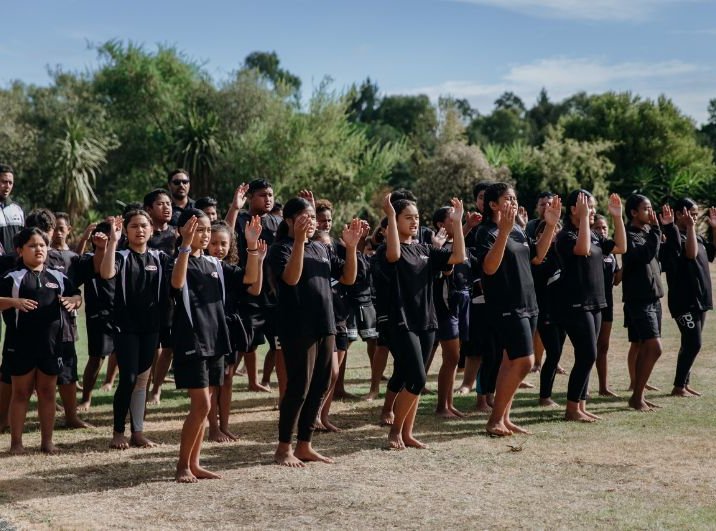Setting the scene
Before starting Te Mana Taurite, practice teams are encouraged to do some reading to get a sense of the wider frameworks that the health sector is working in. What does equity mean? And how have the principles of Te Tiriti been applied to health care in Aotearoa?
Tauranga practice Fifth Avenue Family Practice, started their journey of the Equity module by forming a Māori health rōpū and have since gone from strength to strength, gaining a genuine understanding of health equity and embracing equity as a practice with respect and aroha!
He aha te mana taurite? What is equity?
The College uses the Ministry of Health’s definition of equity:
“In Aotearoa New Zealand, people have differences in health that are not only avoidable but unfair and unjust. Equity recognises different people with different levels of advantage require different approaches and resources to get equitable health outcomes.”
What is cultural safety?
The Medical Council of New Zealand’s definition of cultural safety is:
“The need for doctors to examine themselves and the potential impact of their own culture on clinical interactions and healthcare service delivery.
The commitment by individual doctors to acknowledge and address any of their own biases, attitudes, assumptions, stereotypes, prejudices, structures, and characteristics that may affect the quality of care provided.
The awareness that cultural safety encompasses a critical consciousness where healthcare professionals and healthcare organisations engage in ongoing self-reflection and self-awareness and hold themselves accountable for providing culturally safe care, as defined by the patient and their communities.”
Government policy and research
The impacts of colonisation on Māori include systemic, institutional, interpersonal, and internalised discrimination towards Māori and other groups in Aotearoa.
The resources below will help practices get a sense of the policy mahi and research that government is doing to address this discrimination.
- He ara hauora Māori: a pathway to Māori health equity (2019) from the Medical Council gives practices a clear outline of the rights-based and needs-based arguments for prioritising health for Māori.
- At the Health services and outcomes kaupapa inquiry (2019), the Waitangi Tribunal is conducting an ongoing inquiry into the ways the Crown has responded to health inequities experienced by Māori.
- Many of the effects of colonisation on Māori hauora and wellbeing are also detailed in the data report WAI 2575 Māori health trends report (2019).
- The Ministry of Health provides a lot of useful data that shows the long-term effects of colonisation on Māori health.
- Whakamaua Māori health action plan 2020–2025, sets the government’s strategic direction to achieve Māori pae ora.
Te Tiriti o Waitangi
The College acknowledges Te Tiriti o Waitangi as a founding document of our nation, and the rights and obligations that it contains. We recognise Māori as Tangata Whenua under Te Tiriti, who are guaranteed certain rights in their relationship with the Crown under Article Two.
We recognise non-Māori as Tangata Tiriti under Te Tiriti, who together with Māori as Tangata Whenua, are guaranteed equity rights under Article Three.
Both Tangata Whenua and Tangata Tiriti share a joint citizenship under Te Tiriti, and under other elements of the constitutional framework for Aotearoa New Zealand.
The College recognises and accepts the impacts of colonisation on Māori, and the impacts of systemic, institutional, interpersonal, and internalised discrimination on Māori and on other groups in the population.
Principles of Te Tiriti o Waitangi
The health and disability system's framework Te Tiriti o Waitangi and the health and disability system outlines how a defined set of Te Tiriti o Waitangi principles should be applied to the primary health care system.
The Ministry of Health has utilised these principles in the recent re-development of its Māori Health Action Plan, Whakamaua, noting that they are applicable to the wider health and disability system and not just to primary care.
The College recognises these principles as articulated in HAUORA and Whakamaua and applies them to its work in all areas.

Tino rangatiratanga
Providing for Māori self-determination and mana motuhake in the design, delivery, and monitoring of health and disability services.
Partnership
Working in partnership with Māori in the governance, design, delivery and monitoring of health and disability services—Māori must be co-designers, with the Crown, of the primary health system for Māori.
Equity
Being committed to achieving equitable health outcomes for Māori.
Active protection
Acting to the fullest extent practicable to achieve equitable health outcomes for Māori. This includes ensuring that the Crown, its agents, and its Treaty partner under Te Tiriti are well informed on the extent, and nature, of both Māori health outcomes and efforts to achieve Māori health equity.
Options
Providing for and properly resourcing kaupapa Māori health and disability services. Furthermore, the Crown is obliged to ensure that all health and disability services are provided in a culturally appropriate way that recognises and supports the expression of hauora Māori models of care.
The College realises that understanding Te Tiriti is an evolving process, and that relevant work will need to be revised, based on these evolutions.